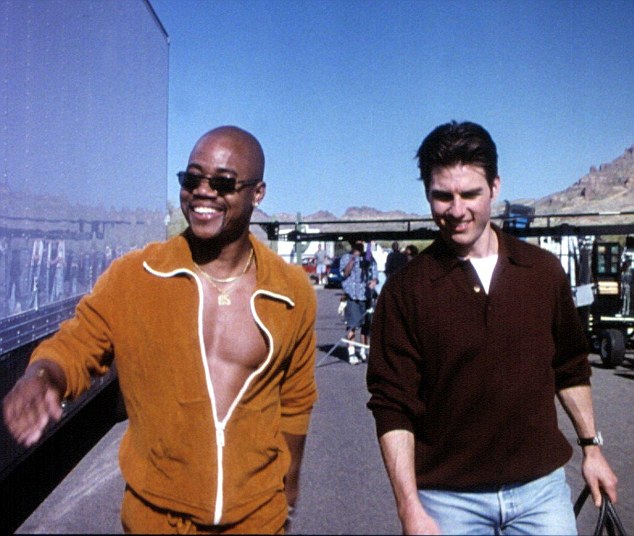
Do you know what employees value in the workplace? As savvy employers grapple with how to attract and retain top talent, they must know what employees value. Cue the 1996 heart-warmer, Jerry Maguire.
In the movie, Tom Cruise’s Jerry is a sports agent who’s just been fired. Suddenly, he’s losing clients quicker than water in a woven basket. As he races against the clock, Jerry makes a last-ditch attempt to retain Arizona Cardinals wide receiver, Rod Tidwell. Tidwell is a talented player with a chip on his shoulder.
As Jerry (Tom Cruise) is pleading his case to Rod (Cuba Gooding, Jr.) over the phone, Rod starts playing L.V.’s The Wrong Come Up on his boombox. Then lowering his voice to a near whisper, he tells Jerry: “Show me the money.” And we’re treated to one of the most iconic scenes in movie history, a catchphrase that just won’t die, and a lesson in what employees may truly value.
So Do You Know What Employees Value?
In my early years as a litigator, I was assigned a case that shaped my perspective on this question. It involved a tenured employee who was alleged discrimination against my client. From early on, she struck me as different. Gentle, exceedingly polite but firm, she made clear from the onset that an apology was important to her. As the case went on, I soon realized it more than mattered to her – it was the only thing she really wanted.
Having worked at her company for over 15 years, she was angry that her allegations were dismissed as lies. She did not take kindly to how her concerns were handled. In the end, she was unequivocal about what she wanted. First, an acknowledgment that she’d been treated unfairly. Second, an apology for having dismissed her claims as lies. I found out that she prided herself on integrity, and so being dismissed as dishonest did not sit well with her. Few employers would agree to these kinds of requests because it’s viewed as an admission to wrongdoing. But she wouldn’t budge. Long story short, her line manager had a chat with her, listened to her concerns in person and with full attention. When she was done, he apologized profusely.
Satisfied that she’d been heard and coming as a total surprise, she dropped the matter. Requesting only her attorneys’ fees, she walked away without requesting any damages. As a newbie lawyer, that left quite a deep impression on me. Here was someone for whom being heard, acknowledged and respected mattered more than a settlement check. As I think about what employees value, this story often reminds me not to assume that I actually have the answers.
The Employer-Employee Disconnect on What Employees Value
That story is an example that when it comes to understanding what employees want, no one-size-fits-all. In fact, assumptions are problematic. Despite knowing this, organizations often find themselves on a different page than employees when asked what employees value.
A great example of this disconnect is captured in a 2021 McKinsey on the Great Resignation. McKinsey asked organizations and employees what they thought were the triggers for the mass workplace exodus in 2021. While employers cited the top three reasons as compensation, the need for better work-life balance and poor physical and emotional health, employees’ top three choices were:
– My company does not value me (54%)
– My manager does not value me (52%)
– I do not feel a sense of belonging at work (51%)
(Employees that identify as non-white or multiracial were more likely than their white counterparts to cite their reason for departure as the absence of a sense of belonging.)
The report reflects that employees want to be valued by their organization and their managers, and they want to feel a sense of belonging (respect is a key part of any culture of belonging). This necessarily begs the question: what do employees consider to be “value”?
Does Value Equal Compensation Alone?
For much of Jerry Maguire, Tidwell laments the fact that he’s not being paid what he’s worth. With their “show me the money” screaming match early in the film, it’s easy at first to assume money or compensation is the only kind of value employees find important. Despite his popular catchphrase, there are hints throughout the movie that Rod wants more than just money. He talks about the respect and recognition he deserves but is not getting. Those two things – respect and recognition – are two intangibles that translate into what Rod considers “value.” When management offers him a less-than-favorable package and the option of a trade to another team, Rod is indignant. He perceives both as slights.
Here, it is worth mentioning that employers’ reasons cited in the McKinsey report are not wrong – they were just not the principal drivers for the great resignation. Put differently, employers’ cited reasons had less of an influence on attrition than the top three reasons employees identified as triggering their resignation.
One way to understand this mismatch is that compensation, work-life balance and health/wellbeing are for employees, the hygiene factors, the basics they expect. So yes, value includes compensation and depending on a person’s income, this could be a smaller or larger part of the value pie. However, one things is certain – value for most employees goes well beyond compensation.
Showing Employees The Kuan
Can organizations differentiate themselves through pay, work-life balance and employee health services? Perhaps. But it is far more likely that when it comes to engagement, productivity and retention, the large differentiators for employees are a mix of things which constitute “value” – something Rod eloquently sums up as “the quan.” The kuan? Yes.
In a post-game locker room exchange, Rod and Jerry are having a conversation:
Jerry: I started talking to Dennis Wilbert about your renegotiation this morning.
Rod: Talking? Jerry Rice, Andre Reeves, Chris Carter, I smoke all these fools. Yet they are making the big, sweet dollar. They are making the kuan. And you’re talking.
Jerry: The kuan? That’s your word?
Rod: Hell, yeah, that’s my word. You know, some dudes might have the coin but they’ll never have the kuan.
Jerry: What… what is…
Rod: It means love, respect, community… and the dollars too. The entire package. The Kuan.
So, value is kuan – love, respect, compensation and community. To bring value to employees, boost engagement, performance and retention, it seems to me that leaders need to be ambassadors of kuan. At movie’s end, sure, Rod gets his big payday. But most importantly, he gets to keep working for the organization he loves, in the city and community in which he’s raised his family, and where he’s always felt he belongs. Although theirs is a player-agent relationship and not an employee-employer relationship, Jerry Maguire gives us insight into what might constitute value to employees. As leaders, brands and organizations, you’re called like Jerry, to be ambassadors of kuan for engaged, performing and committed employees like Rod. And that’s what your people are looking for folks!
What is your version of kuan?


